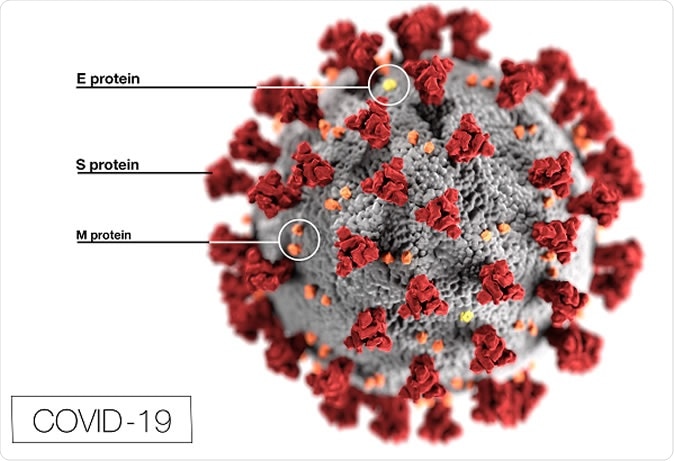Amid the coronavirus disease (COVID-19) pandemic, many theories have emerged about the disease and the treatments that can in supportive care. A recent theory emerged that suggests non-steroidal anti-inflammatory drugs (NSAIDs) might exacerbate the symptoms of the novel coronavirus. Now, a new study shows that there is no evidence for or against the use of NSAIDS, particularly ibuprofen, for patients with COVID-19.

This illustration, created at the Centers for Disease Control and Prevention (CDC), reveals ultrastructural morphology exhibited by coronaviruses. The illness caused by this virus has been named coronavirus disease 2019 (COVID-19). (CDC Illustration)
Safe to use
To determine which drugs are safe to use in patients who tested positive with the coronavirus, the team analyzed 89 existing studies on other diseases caused by the coronavirus – the severe acute respiratory syndrome (SARS) and the Middle East respiratory syndrome (MERS). They also analyzed available literature about COVID-19.
Further, the team looked at medications, such as pain killers, steroids, and other drugs, to see what should potentially be avoided if infected by SARS-CoV-2, the pathogen responsible for the development of COVID-19 disease.
For instance, some people with cancer are currently taking immunosuppressive therapies, which can lower the immune system. In some people, they are taking immunostimulant drugs that can boost the immune system’s ability to protect against infection. These patients and their doctors should know which drugs may aggravate the severity of COVID-19, so they can stop it before it is too late.
“This pandemic has led to challenging decision-making about the treatment of COVID-19 patients who were already critically unwell. In parallel, doctors across multiple specialties are making clinical decisions about the appropriate continuation of treatments for patients with chronic illnesses requiring immune suppressive medication,” Dr. Mieke Van Hemelrijck, the paper author and a cancer epidemiologist, said.
Ibuprofen and COVID-19
In the middle of the coronavirus pandemic, panic sparked among many countries. There has been much speculation that NSAIDs, in general, such as ibuprofen, might aggravate the condition of those infected with SARS-CoV-2.
There is, however, no evidence that ibuprofen, which can be purchased over the counter, or other similar drugs exacerbate the disease. Rather, the notion was simply a theory that has not been tested.
In the recent study, the researchers found no evidence to support the statement hat ibuprofen makes it worse for patients with COVID-19. Since the disease is still new, and there are no protocols for treatment, many doctors are using many different drugs to treat COVID-19 patients.
The researchers also noted that other drugs, such as JAK inhibitors and TNF blockers, which are used to treat arthritis and other inflammation in the body, are also safe to use in COVID-19 patients. Further, in some countries, doctors are using a drug called anti-interleukin-6 agent, to treat patients with COVID-19, but there is no evidence or conclusive proof of its efficacy yet.
However, the researchers did find that a low dosage of prednisolone or tacrolimus therapy may provide benefits to some patients infected with the novel coronavirus.
“Current evidence suggests that low dose prednisolone (a steroid used to treat allergies) and tacrolimus therapy (an immunosuppressive drug given to patients who have had an organ transplant) may have a beneficial impact on the course of coronavirus infections. However, further investigation is needed,” Dr. Sophie Papa, a medical oncologist, and immunologist explained.
As more people are getting infected, and more studies are currently developing, the team will continue to determine treatment options that are safe for the disease.
“Given the current availability of literature, caution should be exercised until further evidence emerges surrounding the use of NSAIDs and corticosteroids in COVID-19 patients,” the researchers recommended.